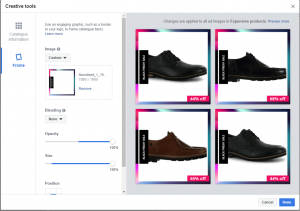
If there’s one thing all entrepreneurs can agree on, it’s that they dread tax season.
In fact, a recent survey by the National Association of Small Business (NSBA) reveals that 38 percent of small businesses reported they spent more than 80 hours a year dealing with federal taxes. That’s two whole workweeks! That same survey found that almost 50% of small businesses spend $ 5,000 or more annually on the accounting process alone—before paying their taxes!
Not only are taxes time consuming, confusing, and a nuisance, but they can also be a drain on your wallet if you don’t prepare well. This is especially true for entrepreneurs who, aside from having to deal with the complicated tax filing process of running a business, also have to actually run the business.
Whether you choose to do taxes on your own or hire an accountant this year, here’s a quick guide on how to knock tax season out of the park:
1. Familiarize Yourself With the Lingo
One thing we shouldn’t complain to the IRS about is the amount of tax breaks they offer. Tax breaks give small business owners and freelancers a great opportunity to win back some of that money they’ve been spending on their business, and it’s a unique way to encourage entrepreneurship.
However, there is a small caveat to this: it’s hard to keep track of what’s what. There are important differences between deductibles, refundable credits, and non-refundable credits. Each can help you in distinctive ways, so it’s useful to know which expenses qualify for which tax break as you track your finances throughout the year. Investopedia and the IRS website are helpful tools that can break down tax vocabulary into simple terms.
Deductibles
Benefits: Lowers taxable income and total tax liability. Can help with items that represent reductions in ability to pay tax (i.e. casualty losses).
What Does That Mean: Because deductions cannot reduce taxable income below zero, their value is limited to the filer’s tax liability before applying the deduction. Value depends on the taxpayer’s marginal tax rate, which rises with income.
Examples: Healthcare expenses, mortgages, car loans, investment-related expenses
Refundable Credits
Benefits: Decreases a person’s tax liability. Same value for all taxpayers with tax liability at least equal to the credit.
What Does That Mean: Treated as payments of tax you made during the tax year. When total of credits is great than total tax owed, you get a refund for the difference. Credits are more appropriate for subsidies provided through the tax system.
Example: Earned Income Credit, Additional Child credit, Small Business Healthcare credit.
Non-Refundable Credits
Benefit: Lower tax limit as low as it can go. Represents the majority of credits.
What Does That Mean: Credit cannot be used to increase tax refund or to create a tax refund when you wouldn’t already have one. Savings cannot exceed amount of tax you owe.Example: If you only owe $ 200 in taxes, and the only credit you’re eligible is for $ 500, the $ 300 difference is non-refundable.
Example: Child and Dependent Care Expenses credit, Saver’s tax credit, Adoption tax credit, Foreign tax credit.
2. Don’t procrastinate
Unless you want to have a very stressful week, don’t wait until right before April 18 (note – usually tax day is April 15) to prep and file your taxes! Last year, the IRS reported that 28% of Americans waited until the last few weeks before tax day to file their return. Sure, you can file for an extension if you can’t make it before the IRS deadline, but there are drawbacks to this, like late fees. And, just because you file late doesn’t mean you get extra time to pay taxes if you owe the government money.
Plus, when you take your time to carefully approach a tax filing, it won’t seem as stressful or time-consuming. You’re more likely to make an error or miss out on a deduction if you rush the process.
3. Stay organized
By far, the easiest way to minimize the hassle of tax season is by staying organized and keeping updated records of receipts, payments, and expenses. The IRS demands documented proof for claims, so having everything stored and accessible can reduce a substantial amount of time and pressure.
Organization also helps maximize deductions and reimbursements without the hassle of scrambling to find misplaced financial records. It also makes it possible to file taxes at the earliest possible time because paperwork is readily available at your fingertips.
Shoeboxed’s mission is to streamline this process so that you can focus on more important things during tax season, like running your business or taking care of your family. We process and organize your receipts so that vendor, total amount, date and payment type are extracted and available in a searchable online account—without you ever having to lift a finger. You can also tag receipts as reimbursable or deductible so when you file taxes, your documents are already cataloged appropriately.
4. Stay informed
There’s a lot to swallow these days when it comes to tax codes, especially since the IRS makes changes on a yearly (and sometimes, even seasonal) basis. It doesn’t hurt to take some time researching professional blogs and news sites that can keep you informed on the latest tax changes. The extra initiative will take a few hours of time on your end, yes, but not nearly as much time it would take to prep taxes with little to no knowledge on how to maximize returns. This is especially helpful for entrepreneurs who do not have their own accountant.
Without a guiding hand, it’s easy to make misinformed decisions with tricky nuances (like filing status, for example). Some helpful sites that give excellent pro advice are Don’t Mess With Taxes, TaxGirl and AICPA.
5. When in doubt, ask a pro
With an endless supply of information, the Internet of things can answer any question you may have related to taxes. Sometimes though, having 10+ pages pulled up with an overwhelming amount of information can make material difficult to digest. If your questions are very intricate and situational, it may be best to approach a tax expert or CPA. Examples of these questions may include:
- Do I have a limit for my charitable contributions?
- Should I itemize deductions? How in-depth?
- When should I contribute to an IRA?
- Should I file jointly, as single, or as head of household?
- I have all these miscellaneous business expenses and reports, but which ones should I keep for reimbursements and deductions?
Sometimes it’s easy to do a quick Google search for these common tax questions. Other times, the answer depends on your business situation, among other variables.
If you have an accountant, keep in touch with them throughout the year. There’s no reason you should wait until tax season every year to speak to them. CPA’s are experts in their field and they’re a great resource that can put you up to date with all the latest changes in tax policy. Stay organized, plan ahead, and you can get the most out of your tax season.
Business & Finance Articles on Business 2 Community(55)
Report Post








